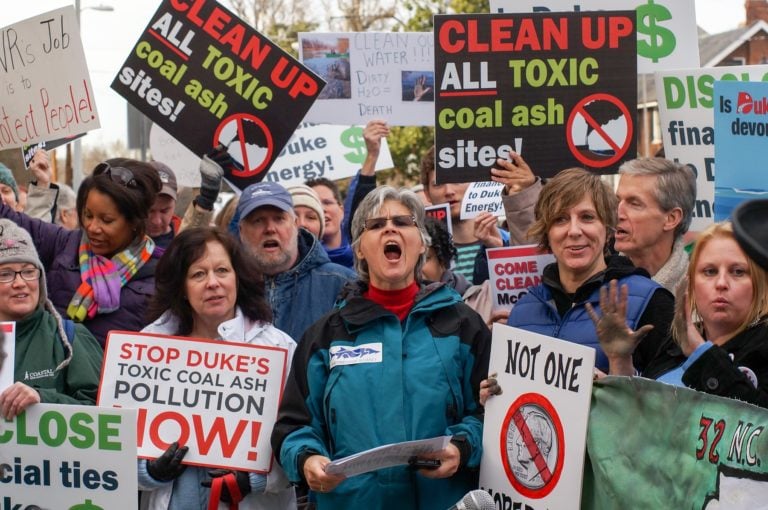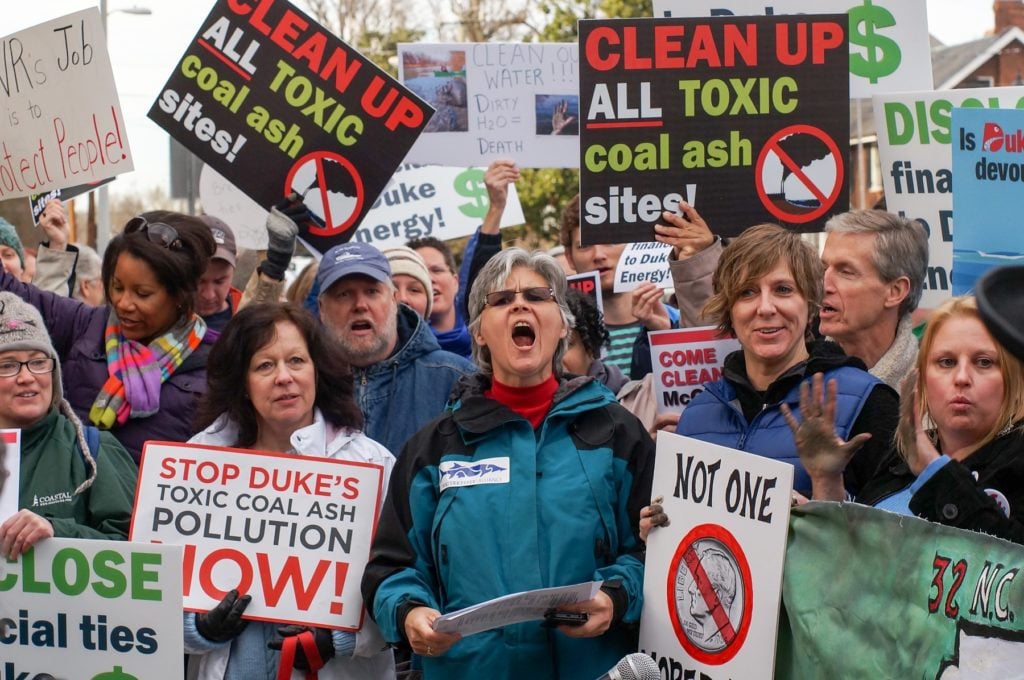
Over the last 45 years, the Clean Water Act and other federal environmental laws have dramatically reduced pollution and improved living conditions across America. Before we had the Clean Water Act, the Clean Air Act, and other vital protections for our health and our natural resources, rivers were so polluted they erupted in flames and cities disappeared in opaque shrouds of lethal smog. An outraged public demanded action from their government, which drove elected officials to enact a suite of innovative and ambitious federal statutes.
Now, a great many of our elected officials, fueled by the campaign contributions of the biggest polluters on earth, have taken aim at the very laws that we have to thank for our breathable air and drinkable water. In the last month, there has been a swell of radical proposals seeking to eliminate many of the features that made these important safeguards so effective. Groveling for the affection of their dirty donors, some members of Congress have taken a particular interest in one especially important component of our environmental protection: the citizen suit provision.
As with any law, the effectiveness of our pollution laws depends on meaningful enforcement. Government agencies like the federal EPA and its state counterparts bear the primary responsibility to implement these laws and ensure compliance with pollution limits. Often, though, these agencies fail to carry out their enforcement duties, either because they are underfunded and understaffed, or because politically powerful polluters have “captured” the very agencies that are supposed to police them.
Anticipating that a lack of government resources or political willpower could severely undermine enforcement of environmental laws, Congress in the 1970s included innovative provisions authorizing private citizens to prosecute violations in cases where government has failed to meet its enforcement responsibilities. Unlike the previously existing legal remedies available only to individuals who have suffered personal injury or property damage, the modern environmental statutes authorize any citizen whose use and enjoyment of a waterway or other resource is being diminished by illegal pollution to file suit to stop the pollution. While plaintiffs in personal injury lawsuits typically seek monetary compensation for their injuries, plaintiffs in citizen suits seek to bring violators into compliance with the law, cleaning up pollution and benefitting our entire society.
Waterkeeper Alliance has a long tradition of using the power of the law to stop water pollution. The Waterkeeper movement began 50 years ago in New York’s Hudson River Valley when a group of blue-collar fishermen met at an American Legion Hall to figure out how they could stop the rampant pollution destroying the Hudson River and its fishery. Calling themselves the Hudson River Fishermen’s Association (the precursor to Hudson Riverkeeper, the first Waterkeeper organization), the group devised a novel plan to use two little-known laws from the 19th century – the Rivers and Harbors Act of 1888 and the Refuse Act of 1899 – to take on the industries that were fouling the Hudson.

Just six years after the fishermen began using these antiquated laws to stop pollution, Congress passed the Clean Water Act. The citizen suit provision in the landmark 1972 law provided a valuable new tool to protect America’s waterways. Since then, Waterkeeper Alliance and its members have used Clean Water Act citizen suits to bring hundreds of polluters into compliance. Of all the Clean Water Act citizen enforcement actions initiated against polluters between 2005 and 2014, nearly a quarter involved Waterkeeper Alliance or its members.
Here are just a few examples:
- After state regulators failed to notice three mountaintop removal coal mining companies were masking serious water pollution discharges by submitting the same fake water quality data month after month, Waterkeeper Alliance, Kentucky Riverkeeper, and our partners sued the companies using the Clean Water Act citizen suit provision. Only after we exposed the tens of thousands of Clean Water Act violations did the embarrassed government regulators undertake enforcement action of their own. The whole scandal led to the passage of a wastewater laboratory certification law in Kentucky, as well as fines and other sanctions for the companies involved.
- Puget Soundkeeper brought a Clean Water Act citizen suit against the city of Bremerton, WA, which was discharging hundreds of millions of gallons of raw sewage into the Puget Sound. Thanks to Soundkeeper’s action, Bremerton cut its sewage discharges by 96%.
- For decades Duke Energy stored toxic coal ash in huge, leaking pits that contaminated groundwater and rivers at all of its coal power plants in North Carolina, while state regulators turned a blind eye. Then, Waterkeeper Alliance and the Catawba, Cape Fear, Yadkin, French Broad, and Waccamaw Riverkeepers banded together to expose the pollution and file citizen suits against Duke. Not only did the suits spur enforcement actions by the state, Duke Energy must now remove all the coal ash from more than half the sites and provide clean water to hundreds of families whose drinking water is threatened by the contamination.
- In 2004, Hudson Riverkeeper filed a citizen suit against ExxonMobil to clean up as much as 30 million gallons of oil that spilled from a New York City refinery over the course of a century, contaminating ground water in a 50-acre area in Brooklyn. The suit ultimately led to a settlement requiring Exxon to undertake a massive remediation project and contribute nearly $20 million to projects aimed at reducing air and water pollution in the surrounding community.
In each of these cases, dangerous pollution would have carried on indefinitely had it not been for citizen enforcement. Democratizing enforcement of our environmental laws provides an important backstop when government regulators fail to uphold the law, promotes fuller implementation of the law, and enhances important protections for our health and natural resources.
Other countries have taken note of citizen suits’ effectiveness in the United States as they develop their own environmental laws. Recognizing that a lack of enforcement at the local level was contributing to a national environmental crisis, the Chinese government amended its Environmental Protection Law in 2014 to allow citizens to file enforcement actions “against acts that pollute the environment and … have the major risk of harming the social public interests.” Communities and public interest groups have started using the new authority to address terrible pollution problems that had plagued communities for many years without government action.

New threats
In 1985, the U.S. Senate Committee on Environment and Public Works found that “citizen suits are a proven enforcement tool. They operate as Congress intended-to both spur and supplement … government enforcement actions. They have deterred violators and achieved significant compliance gains.” Nowadays, however, some legislators (many of whom receive large campaign contributions from corporate polluters) are singing a much different tune, seeking to water down citizen enforcement authority, or possibly even eliminate it altogether.
Because citizens suits have proven to be such a powerful and effective mechanism to stop illegal pollution, it is perhaps no wonder that lobbyists for the most powerful polluters in the country have taken aim at the laws that authorize them. In an era when industry lobbyists hand deliver their deep-pocketed clients’ wish lists to government officials, bills seeking to quell citizen participation in environmental enforcement have already begun to surface in Congress. For instance:
- H.R.1179, the so-called “Discouraging Frivolous Lawsuits Act,” introduced by Rep. Tom Rice (R-SC), would actually discourage citizens from bringing non-frivolous Clean Water Act enforcement suits. In spite of what the misleading title suggests, truly frivolous lawsuits are already discouraged by the threat of court sanctions and liability for the opposing side’s legal fees. This bill would create a new requirement for the citizen to pay the defendant’s attorney fees if the citizen did not ultimately prevail in court, forcing would-be plaintiffs to risk financial ruin by filing good-faith Clean Water Act citizen suits.
- H.B. 848, introduced by Rep. Dan Newhouse (R-WA), would severely hamper citizens’ ability to sue factory farms that contaminate groundwater with dangerous pathogens. The bill would amend the Resource Conservation and Recovery Act to prohibit a citizen suit against an agricultural operation that was illegally creating “imminent and substantial endangerment” to human health or the environment, as long as state regulators had developed a vague, open-ended, and non-binding “plan to achieve compliance” with the law. This could be highly problematic in the many states where Big Ag enjoys a very cozy relationship with state regulators that have a track record of lax enforcement, i.e., the states where citizen suits are needed most.
Proponents of these efforts to erode democracy and public rights to participate in environmental protection often cite a concern that citizen suit provisions allow “runaway litigation” by deep-pocketed environmental groups that clog the courts with frivolous lawsuits, harass law-abiding businesses, and interfere with government oversight. These alleged fears have no basis in fact. To the contrary, citizen suits play a vital role in protecting lives and cleaning up pollution, and they pose no threat at all to businesses that obey pollution laws.
The United States’ suite of federal environmental laws has profoundly improved the living conditions of every single American, saved lives, and has served as a model for environmental regulation in other countries around the world. Citizen suits are a major part of this success. By democratizing enforcement, our government works more efficiently and effectively, and we all benefit from cleaner air, land, and water. The recent attempts by our elected officials to steal away this important right would benefit a powerful few polluters, while leaving people and communities defenseless against dangerous pollution.